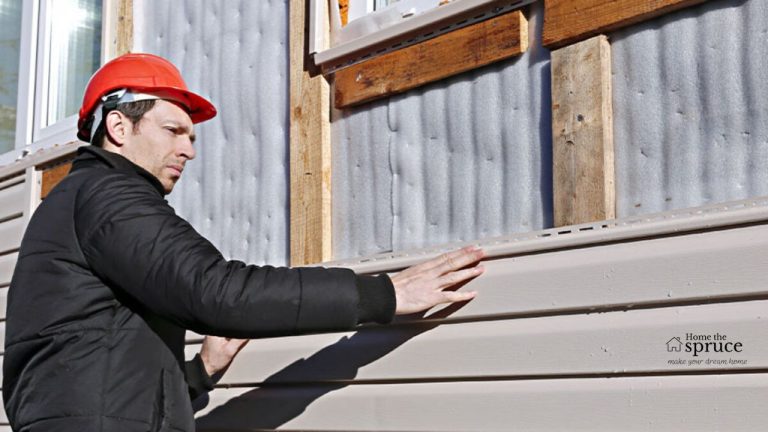Have you ever thought a task would be simple, only to realize halfway through that you were wildly unprepared? That’s moving in a nutshell. What starts as an exciting fresh start can quickly turn into chaos. Boxes pile up, furniture won’t fit through doors, and suddenly, you can’t find your toothbrush.

Relocating is one of life’s biggest logistical challenges. It seems straightforward—pack, move, unpack—but the details can be overwhelming. People underestimate how much stuff they own, misjudge timelines, or forget important steps. Small mistakes snowball into major stress, leaving homeowners scrambling to fix last-minute problems.
In this blog, we will share the most common moving mistakes and how to avoid them, so your next transition can be smooth and stress-free.
Underestimating Time and Effort
One of the biggest mistakes people make is assuming moving is a quick process. It’s not. Sorting through belongings, packing, coordinating transportation, and setting up a new home all take time. Many start too late, thinking they can box up years of possessions in a single weekend. Then, the panic sets in.
Moving isn’t just about packing—it’s about decision-making. Every item requires a choice: keep, donate, or toss? The emotional attachment to random things suddenly skyrockets. That old college sweatshirt? Suddenly priceless. The kitchen gadget you haven’t used in five years? You might need it someday. The result? People waste time debating instead of packing.
This is where hiring a professional makes all the difference. A moving company can streamline the process, ensuring everything is packed efficiently and transported safely. They also prevent the classic “frantically throwing things into trash bags at 2 a.m.” scenario. Experienced movers know how to maximize space, protect fragile items, and make the entire experience far less stressful.
Waiting until the last minute also creates another problem—lack of supplies. Most people don’t buy enough boxes, tape, or packing materials. Running out of supplies mid-move leads to repurposing random bags, stuffing fragile items into weak boxes, or worse—stacking things improperly in a truck. Proper planning ensures that packing supplies don’t become an obstacle.
Forgetting to Declutter Before Packing
If moving is stressful, unpacking unnecessary junk in a new home is even worse. People tend to take everything with them, thinking they’ll sort it later. But later rarely comes. Instead, clutter follows, filling up storage spaces and garages.
Decluttering before a move makes everything easier. It reduces packing time, lowers transportation costs, and ensures the new home starts fresh. Yet many skip this step, only to regret it later. Instead of packing an entire junk drawer, it’s better to sort through items and make conscious decisions about what’s worth keeping.
Ignoring the Importance of Labeling
A well-labeled box is a lifesaver. A mystery box, however, is a headache waiting to happen. In the rush of packing, people often toss things into random boxes, assuming they’ll remember where everything is. Spoiler alert: they won’t.
Arriving at a new home with unlabeled boxes means searching through dozens of them just to find basic essentials. The frustration of opening five boxes before locating the coffee maker is real. Taking a few extra seconds to write contents on the side of each box saves hours of stress later.
A simple system works best—labeling by room and contents. “Kitchen – Plates & Cups” is far more helpful than “Miscellaneous Stuff.” Color-coded stickers or markers make unpacking even smoother. When movers know exactly where to place boxes, settling in becomes much easier.
Forgetting About Utilities and Address Changes
Nothing is worse than arriving at a new home only to realize the electricity isn’t on. Or that the internet won’t be set up for another week. Overlooking utility transfers is a common mistake that creates unnecessary frustration.
Scheduling utility connections ahead of time ensures everything is ready upon arrival. Water, electricity, gas, and internet should all be arranged before moving day. Calling providers a few weeks in advance prevents last-minute surprises.
Changing addresses is another overlooked step. Missing mail, delayed bills, and important documents going to an old address can cause major issues. Updating addresses with banks, subscription services, and government agencies avoids these complications.
Overloading Boxes and Ignoring Proper Packing Techniques
Packing isn’t just about fitting everything into boxes—it’s about protecting belongings. Many people overfill large boxes, thinking it saves space. Instead, it just makes them impossible to lift and increases the risk of items breaking.
Heavier items should go in smaller boxes to keep weight manageable. Fragile items need extra padding, and breakables should never be placed at the bottom of a box. Using blankets or clothing as padding can help protect delicate objects without wasting space.
Improper packing leads to damaged belongings and unnecessary frustration. Taking the time to pack carefully ensures that everything arrives in one piece.
Not Having an Essentials Box
Moving day is exhausting, and by the time everything is unloaded, no one wants to dig through boxes just to find a toothbrush. Yet, many people forget to set aside a box of essentials.
An essentials box should contain daily necessities—basic toiletries, medications, chargers, snacks, and a change of clothes. Keeping it easily accessible prevents unnecessary stress.
A separate box for important documents is also a good idea. Birth certificates, passports, and financial paperwork should never be packed in random boxes. Keeping them secure and accessible prevents unnecessary panic later.
Expecting the Move to Go Perfectly
No matter how well a move is planned, something unexpected always happens. Traffic delays, bad weather, misplaced items—relocation rarely goes 100% smoothly. The key is to stay flexible and have a backup plan.
Expecting perfection leads to frustration when things don’t go as planned. Having a realistic mindset helps manage stress. Giving extra time for unexpected delays, keeping an emergency bag on hand, and staying adaptable makes the process far less overwhelming.
The takeaway? Moving is never as simple as it seems, but avoiding common mistakes makes the experience much smoother. Planning ahead, decluttering, and using professional services can turn a chaotic process into a manageable one. Taking time to organize, label, and pack efficiently prevents unnecessary stress.
At the end of the day, relocating is about more than just changing addresses—it’s about creating a new home. Avoiding these mistakes helps ensure that the transition is as seamless and stress-free as possible.


















